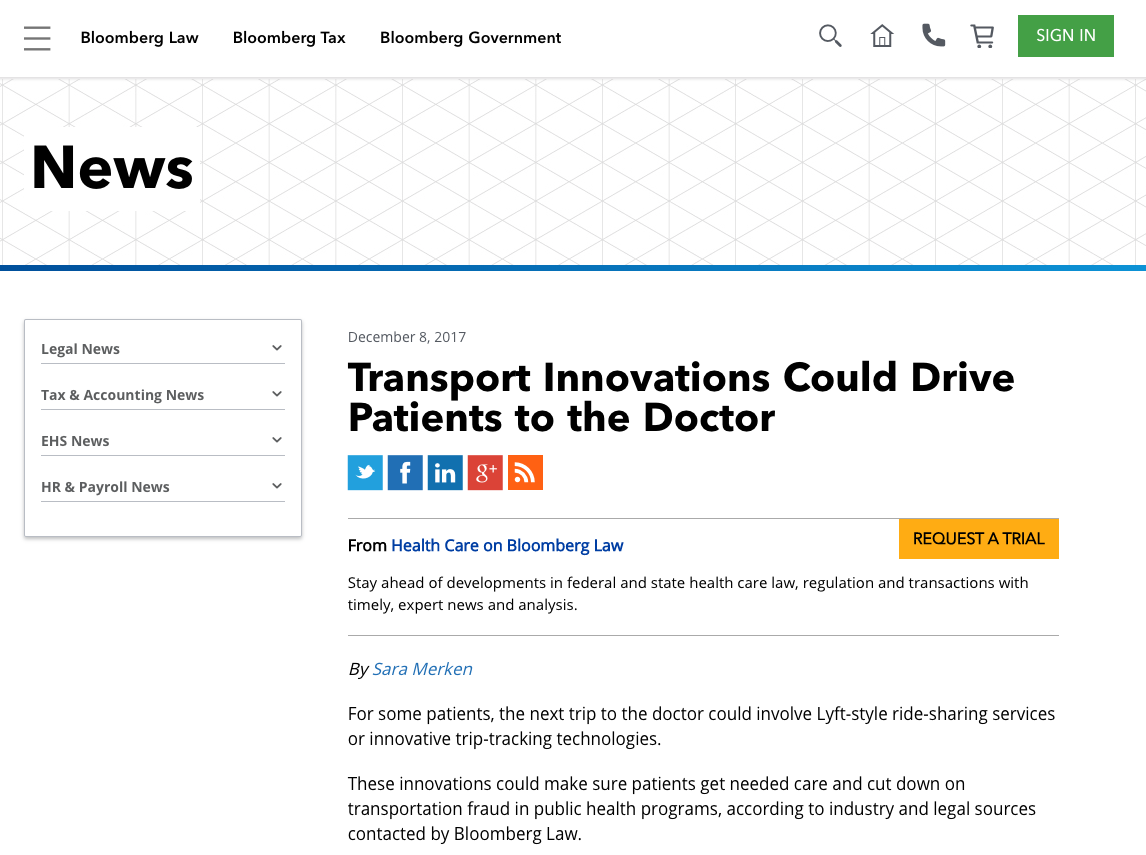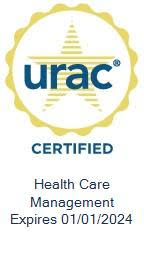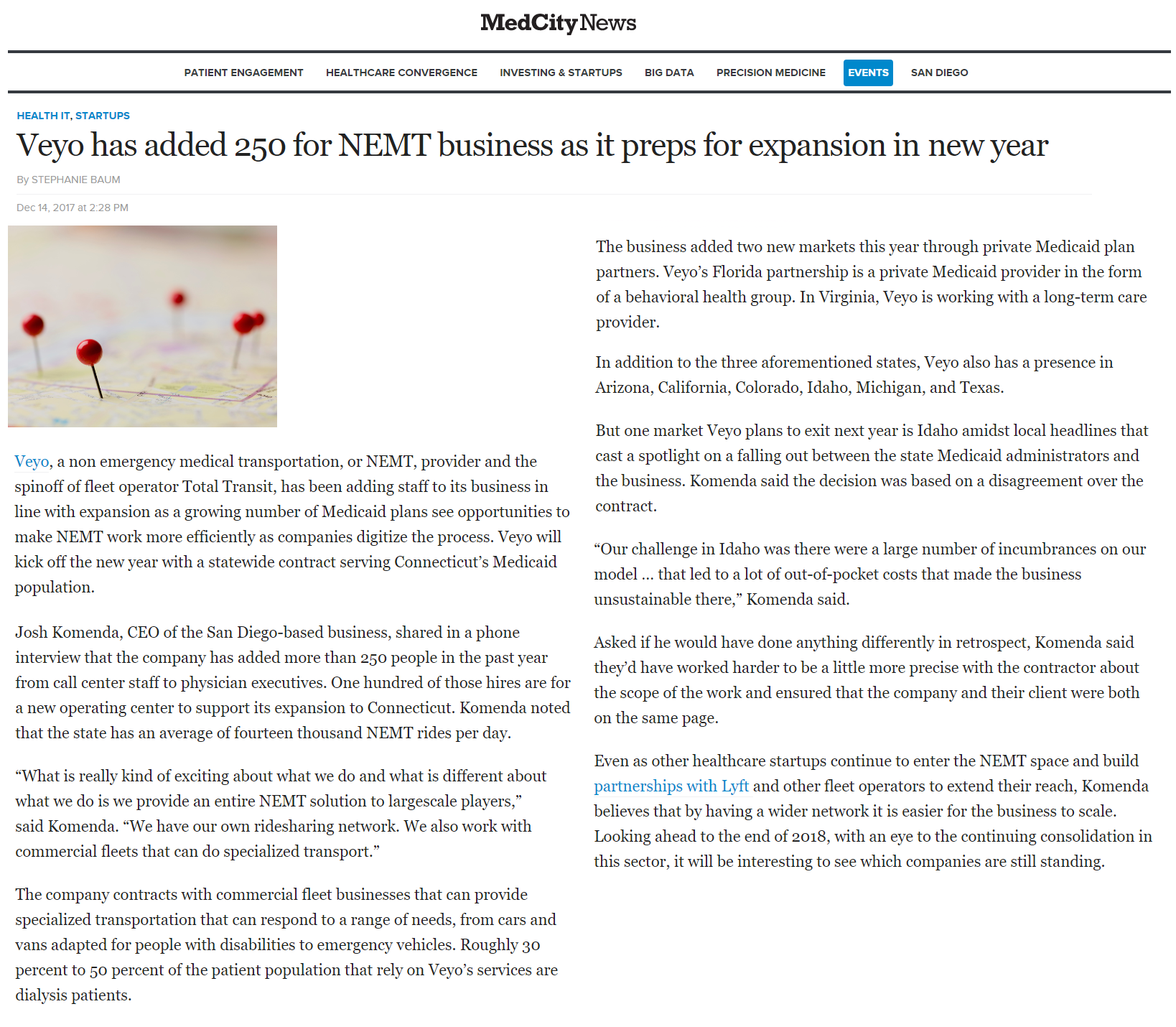Veyo Highlighted on Bloomberg BNA
December 21, 2017
Veyo was recently mentioned in a Bloomberg BNA article around rideshare technology in patient transportation. The original article, “Transport Innovations Could Drive Patients to the Doctor,” can be found here.
——-
For some patients, the next trip to the doctor could involve Lyft-style ride-sharing services or innovative trip-tracking technologies.
These innovations could make sure patients get needed care and cut down on transportation fraud in public health programs, according to industry and legal sources contacted by Bloomberg Law.
States are required to provide nonemergency medical transportation (NEMT) services to qualified Medicaid beneficiaries who lack the ability to independently go to a medical appointment. Some Medicaid and Medicare managed care plans also provide the benefit in different forms. State Medicaid programs can choose to manage authorization of NEMT coverage, or can contract with other entities, called transportation brokers, to manage the fleet of cars and patient communication.
At least 3.6 million people miss or delay medical appointments each year because of a lack of available or affordable transportation, a 2005 Transportation Research Board study estimated.
Opportunity to Transform the System
A variety of new and already-established companies are breaking into the NEMT space to provide and coordinate rides, and although each company uses diverse models and technology, the ultimate mission for all is the same: to enhance data collection and transparency of rides given by transportation providers to enable a healthier population and eliminate the ability to get reimbursed for fraudulent claims.
“The existing centralized state level broker model is ineffective, and does not meet the needs of patients, or their health care providers, or the subcontracted drivers in a sufficient way,” Imran Cronk, co-founder and chief executive of New York-based Ride Health, told Bloomberg Law. Ride Health manages automated coordination among transportation providers, patients and health-care providers.
“Ride-sharing has the opportunity to transform NEMT,” Gyre Renwick, vice president of Lyft Business, told Bloomberg Law in an email.
Better Health Outcomes
Transportation services to doctor appointments are necessary to maintain a healthy population, because patients that miss appointments ultimately delay care, which results in worse and more costly conditions, the innovative transportation coordinators and providers said.
“It’s really hard to understate how critically important transportation is,” Ann Hwang, director of the Boston-based Center for Consumer Engagement in Health Innovation, told Bloomberg Law.
Low-income individuals or those with chronic health conditions often face transportation barriers, and many have a difficult time getting to the doctor because they lack access to a car, Josh Komenda, president of Veyo, told Bloomberg Law. Veyo is a San Diego-based NEMT broker that works with state governments and managed care organizations.
Medicaid spends about $3 billion on NEMT annually, less than 1 percent of total Medicaid expenditures, according to the Transit Cooperative Research Program, a federally funded program. The result of missed or delayed care, though, can lead to more Medicaid and patient spending down the line as health conditions worsen, Komenda said.
Innovation in the NEMT space “will allow more Medicaid beneficiaries to take advantage of the transportation benefit.” Anna Grizzle, a member of Bass, Berry and Sims PLC’s Nashville, Tenn., office, told Bloomberg Law Dec. 6. Grizzle represents health-care clients in fraud and abuse cases as well as other matters.
“Anything that can be done to increase access to health services should result in healthier outcomes for Medicaid patients,” ultimately resulting in reduced Medicaid spending, Grizzle said. Treating a condition before it worsens will result in less money spent to take care of that patient later on, she said.
Transparency Eliminates Fraud
GPS tracking of drivers and the ability to time-stamp ride pick-up and drop-off times can provide increased transparency and additional data, which can help insurance companies and health-care providers detect and eliminate fraudulent claims, Komenda said.
The enhanced technology gives payers electronic documentation and verifiable evidence of trip details, he said…
The full article can be found here.



